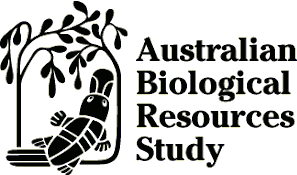Australian Tropical Rainforest Plants - Online edition
Brachychiton discolor F.Muell.
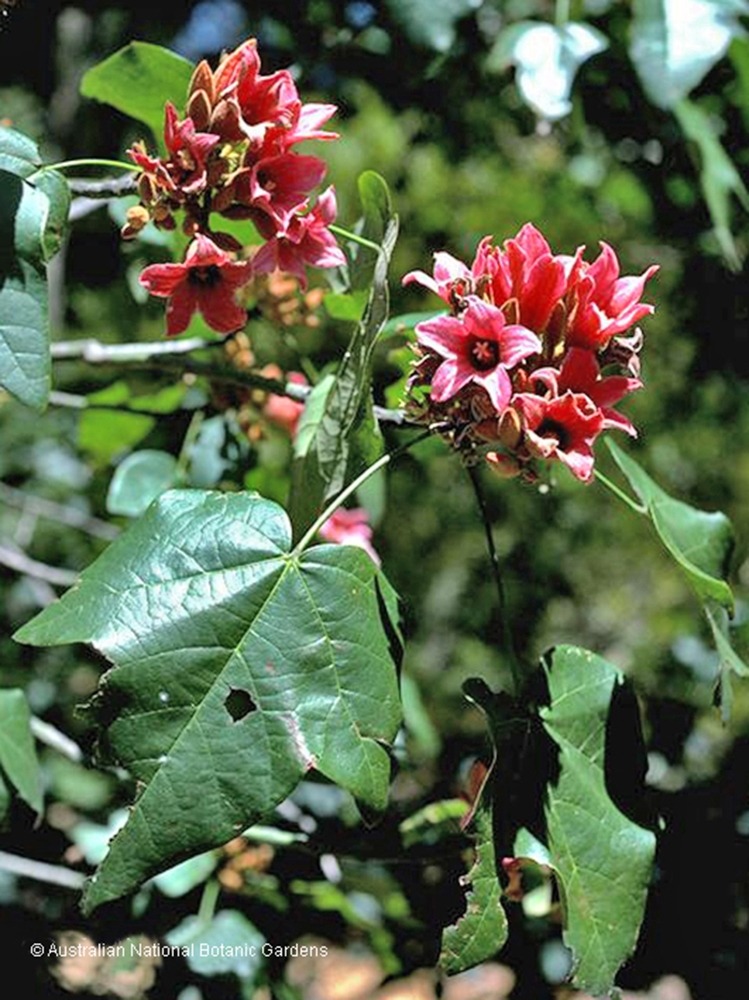
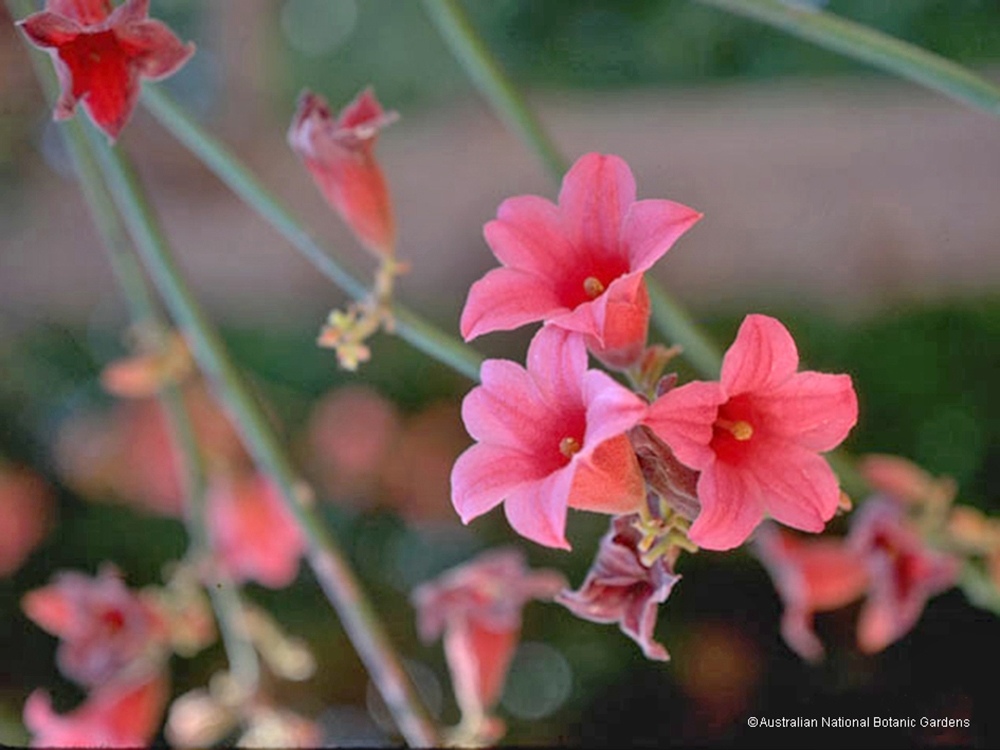
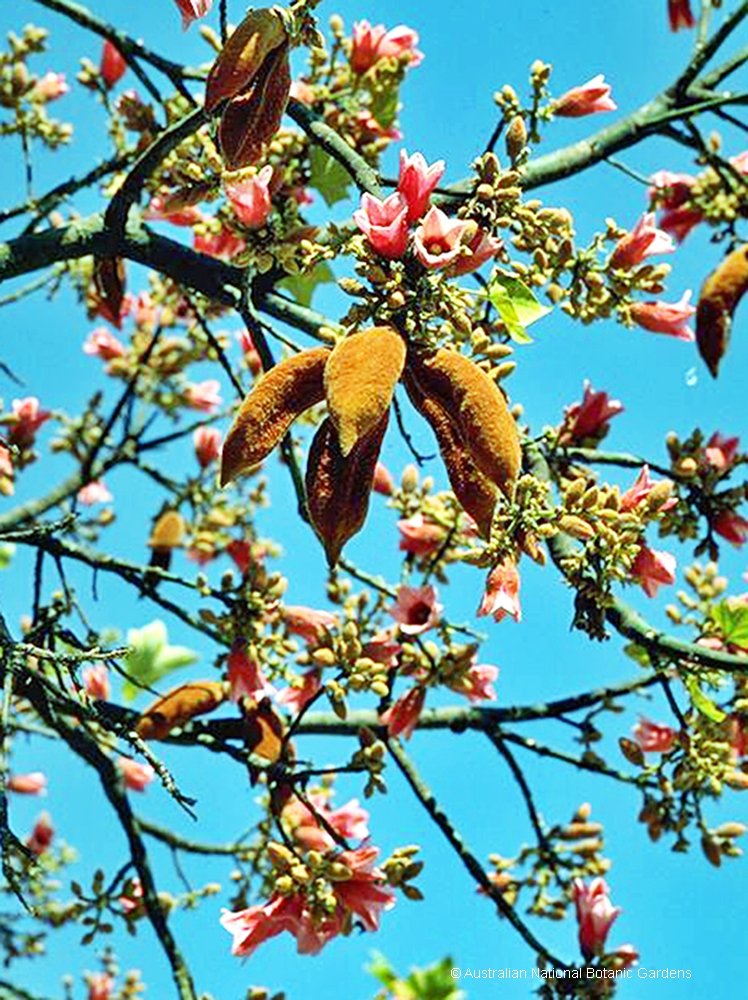
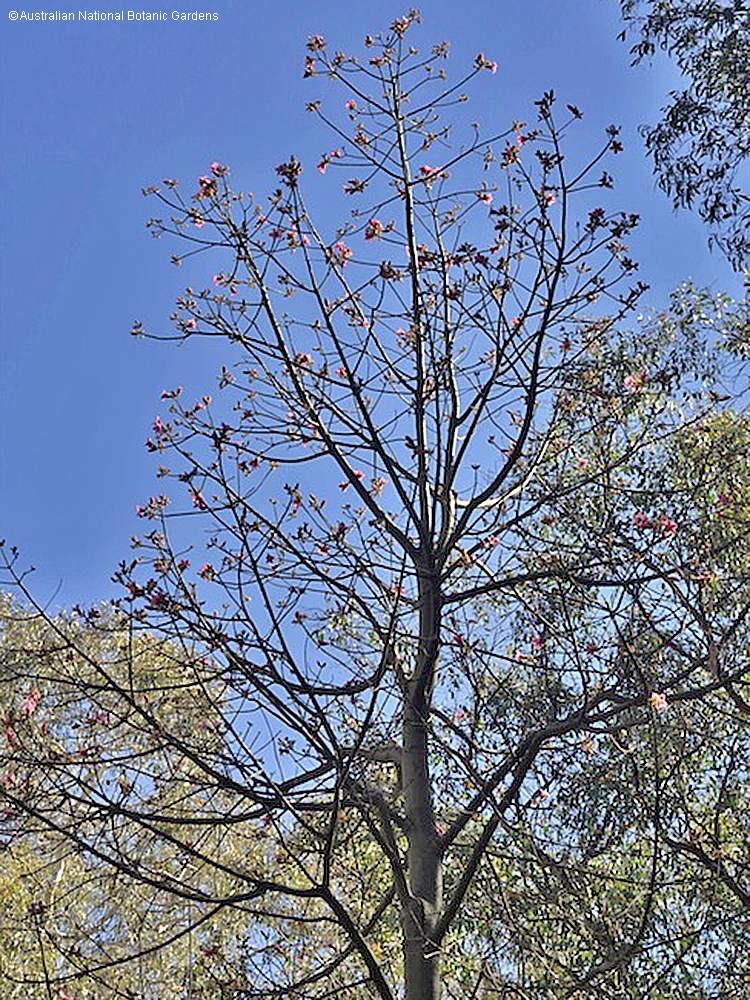
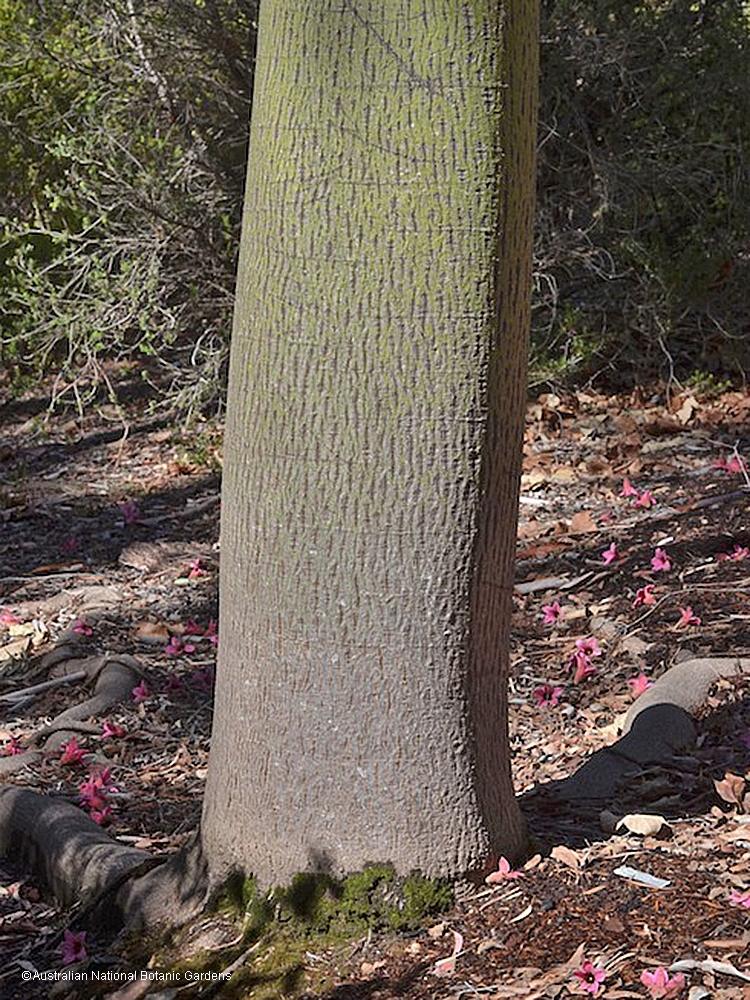
Mueller, F.J.H. von, (1858). Fragmenta Phytographiae Australiae 1(1). Type: “Ad flumen Pine River Australiae orientalis subtropicae. W. Hill. Ad rivos Clarence et Richmond River. C. Moore.”
Lacebark Tree.
Tree 15 to 35 m tall, deciduous. Bark straw coloured or yellowish, dark brown or dark grey, irregularly fissured or lace like. Branchlets stellate pubescent to glabrescent (becoming sparsely hairy or hairless).
Leaves simple and alternate. New growth tinged pink. Stipules caducous (falling early), triangular-lanceolate, about 6-17 mm long, covered with short stellate hairs. Petioles terete, 5-17 cm long. Mature leaf blades palmately lobed, about 10-22 cm long, 10-20 cm wide, 5-(-7) lobed to about middle, margin entire.. Mature leaf blade shiny above, glabrescent, paler below, with white stellate below interspersed with brown hairs. Palmately veined, venation more or less flush above and raised below leaf blade. Juvenile leaf blades dull and sparsely hairy above, hairy below (simple with scattered glandular hairs), palmate, deeply 5-7 lobed.
Inflorescence axillary, ramiflorous, paniculate, 3-10 flowered, congested. Plant monoecious, flowers unisexual. Perianth campanulate (bell shaped), 5 (8) lobed, about 35-560 mm long, 50-60 mm diam., stellate hairy and papillate on the outer surface and stellate tomentose inside, generally pink, darker red inside. Floral nectaries distinct, 10 (-16) in total, 2 opposite each perianth lobe, 1.6-2.2 mm long towards base of tube. Male flowers: anthers, at least 25-30 borne on a stalk or staminal column to about 18 mm long, anthers yellow, to c. 2.6 mm long; remnant ovary or carpelodes surrounded by anthers at apex of column. Female flowers: staminodes 25 or 30 to c. 2 mm long at base of ovary. Ovary: 5 free carpels, stellate hairy, to about 4.5-6 mm long; styles about 3.5-5 mm long; stigmas about 2-3 mm long.
Features not available.
Occurs in CEQ from Mackay southwards to north of Newcastle in central New South Wales. Altitudinal range from near sea level to 1000 m. Brachychiton discolor is found in dry rainforest communities. Individuals can be found outside this range as cultivated plants.
This species is similar to Brachychiton velutinosus but is distinguished by the number of lobes, 5-7 divided to middle in Brachychiton discolor and 3 shallow lobes in B. velutinosus, the colour of flowers, pink in B. discolor compared with pink-red in B. velutinosus and the presence of papillae on the outside of the perianth in B. discolor.
Sterculia discolor (F.Muell.) Benth., Fl. Austral. 1: 228 (1863). Clompanus discolor (Hook.) Kuntze., Rev. Gen. Plant. 1: 78 (1891). Brachychiton paradoxus subsp. discolor (F.Muell.) A.Terracc., Bollettino delle r. Orto Botanico e Giardino Coloniale di Palermo 1(2): 60 (1897). Brachychiton luridus C.Moore ex F.Muell., Fragmenta Phytographiae Australiae 1(1): 1 (1858). Type: “Ad flumen Clarence River. C. Moore.” Sterculia lurida (F.Muell.) Benth., Flora Australiensis 1: 228 (1863). Clompanus lurida (F.Muell.) Kuntze., Revisio Generum Plantarum 1: 78 (1891). Brachychiton paradoxus subsp. luridus (F.Muell.) A.Terracc., Bollettino delle r. Orto Botanico e Giardino Coloniale di Palermo 1(2): 61 (1897).
1213




